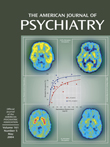Finding the Real Me: True Tales of Sex and Gender Diversity
As a seasoned adult psychiatrist, I thought that I had an acceptable working knowledge of gender identity disorder. Then I read this book. As the title suggests, it is a volume of stories, first-person accounts of individuals who have faced huge challenges to their identity. In reading their stories, I was engaged by the complexity of their lives, the confusion and loneliness, the effects on their families, and the dignity and courage that underlie their distinctive journeys.
The foreword is written by Stephen Whittle, J.D., a senior lecturer in law in England, prolific author, social activist, and transsexual man. He sets the stage with this statement:
Trans people beg the whole question of human understanding as it currently is about gender and sex. Taking that challenge, over the past fifty years, the transsexual/transgender community through writing and theorizing has attempted to offer an “insider’s” exploration of the ways in which trans people view gender issues. As this work progresses, trans people have been among the first to acknowledge that gender, as we know it, is not a clear-cut issue.
The coeditors are Dr. Tracie O’Keefe, a clinical hypnotherapist, psychotherapist, and counselor who came out as a transsexual woman in 1997, and Katrina Fox, her partner, who is a freelance journalist, book author, and former dancer and actress. In the introduction they describe their intent to let the authors’ stories stand alone without analysis or commentary. They write,
We think it’s about time for those who have often been pathologized by the medical profession, demonized by mainstream society, and ignored by lawmakers for years to speak their truths for themselves.
What follows, after a glossary (thank goodness—I needed definitions of the terms “metagender,” “she-male,” “sie,” “s/he,” “zie,” and “transgender” versus “transsexual”), are 26 stories by people from all over the world but mainly the United Kingdom, Australia, and the United States. Although some describe “being trapped in the wrong body,” not all do as they make the transition from male to female or female to male. There is no magic endpoint for many but only a new beginning—a process that may take them into a relationship with someone of the opposite sex or same sex, someone born into that sex or someone who also has made a transition. Some male-to-female transsexuals may stop along the way and live indefinitely and quite comfortably with breasts and male genitalia. Many of the writings celebrate gender diversity and having had the experience of living one facet of life as a woman or man and another phase as the other.
As a couples’ therapist, I was most interested in their relationships. I think I’m correct in concluding that their relationships are really about love and finding someone, finally, who accepts them, someone whom they can trust and love in return. And this may or may not include having a family. Nonsexual intimacy seems to have ascendancy over sexual compatibility and fulfillment.
Downside of the book? Although each of the narratives is interesting, most psychiatrists may not want—or have the time—to read so many accounts. To be expected, the writing styles vary greatly, but each author’s voice is eminently audible. The editors list resources, including web sites, of organizations and groups across the globe. This is a wonderful book to recommend to patients who are questioning their gender identity; it will lessen the isolation, inform, instill hope, and enrich psychotherapy.



